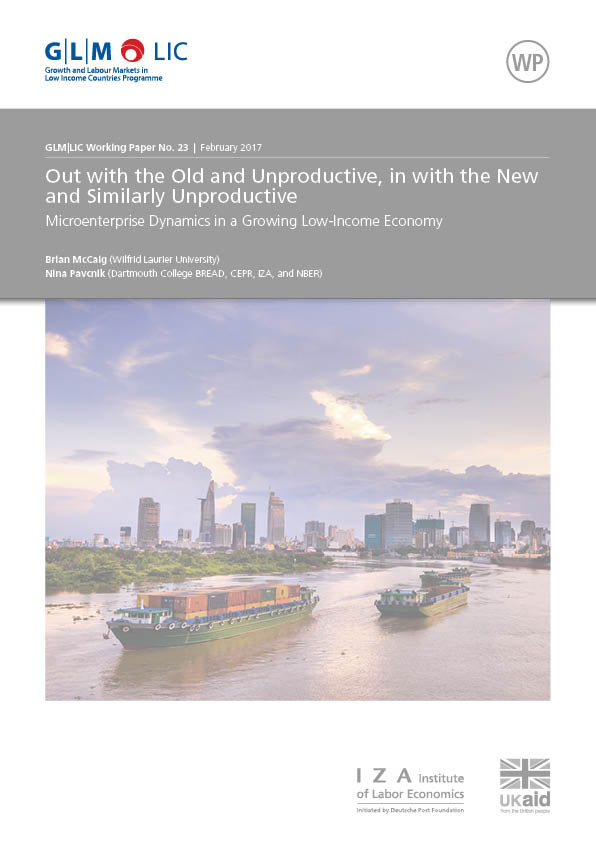Non-farm microenterprises employ a large share of the overall and non-agricultural workforce in low-income counties. Yet, the lack of large-scale, nationally representative data on microenterprises often precludes a systematic study of their business dynamics. We examine the dynamics of non-farm microenterprises, including entry, exit, hiring, and transitions to the formal sector, with nationally representative longitudinal household surveys in Vietnam. We find that older business do not perform substantially better than their younger counterparts. Business exit is prevalent and inversely related to business performance. Nevertheless, poorly performing exiting firms are replaced by equally poorly performing entrants, which have little hope of growing into a successful business. Incumbents that are more successful initially are more likely to start hiring workers, increase their workforce, and the most successful transition to become a formal enterprise. However, incumbents that undertake these activities are very rare. Our analysis also highlights the strong correlation of characteristics of a key production input – the owner – with business entry and exit, revenue growth and the ability of a microenterprise to transition to a hiring business. The owner’s education and past employment experience play a particularly important role. However, education levels of microenterprise owners, including those that hire, are low, especially relative to wage earners in the formal sector. Overall, our analysis suggests that for most microenterprises in Vietnam, there is little potential for sustained growth and employment expansion.
